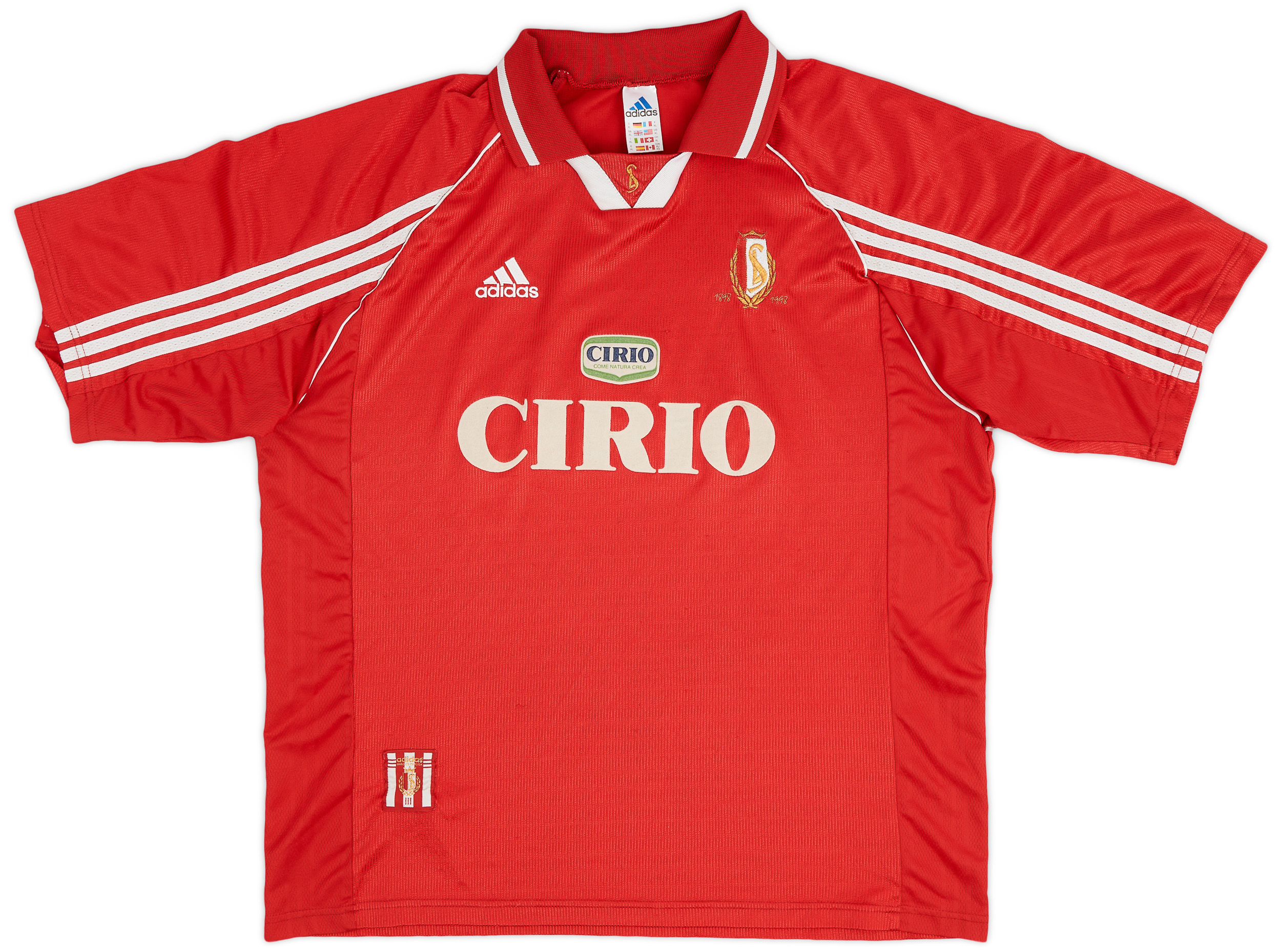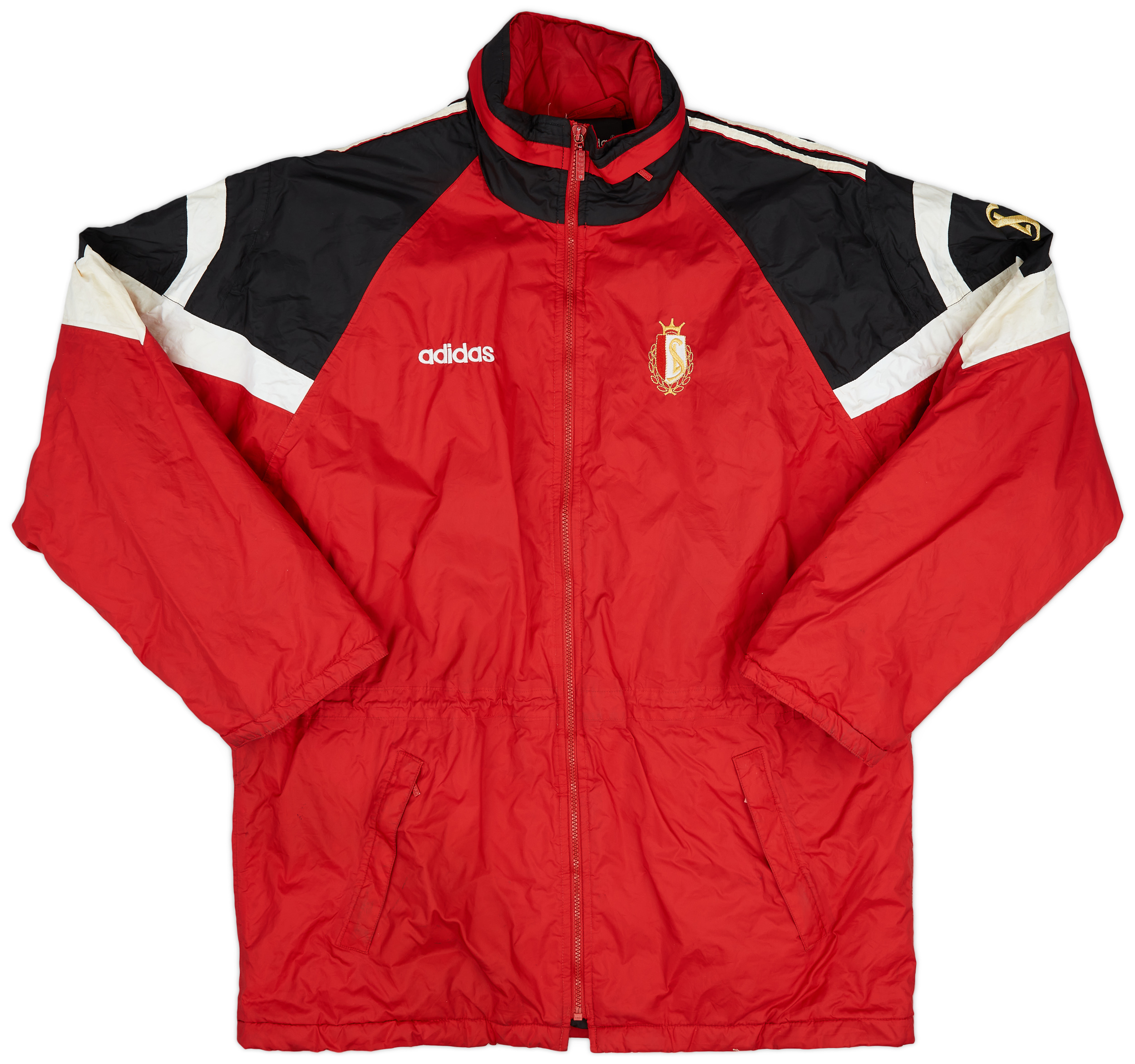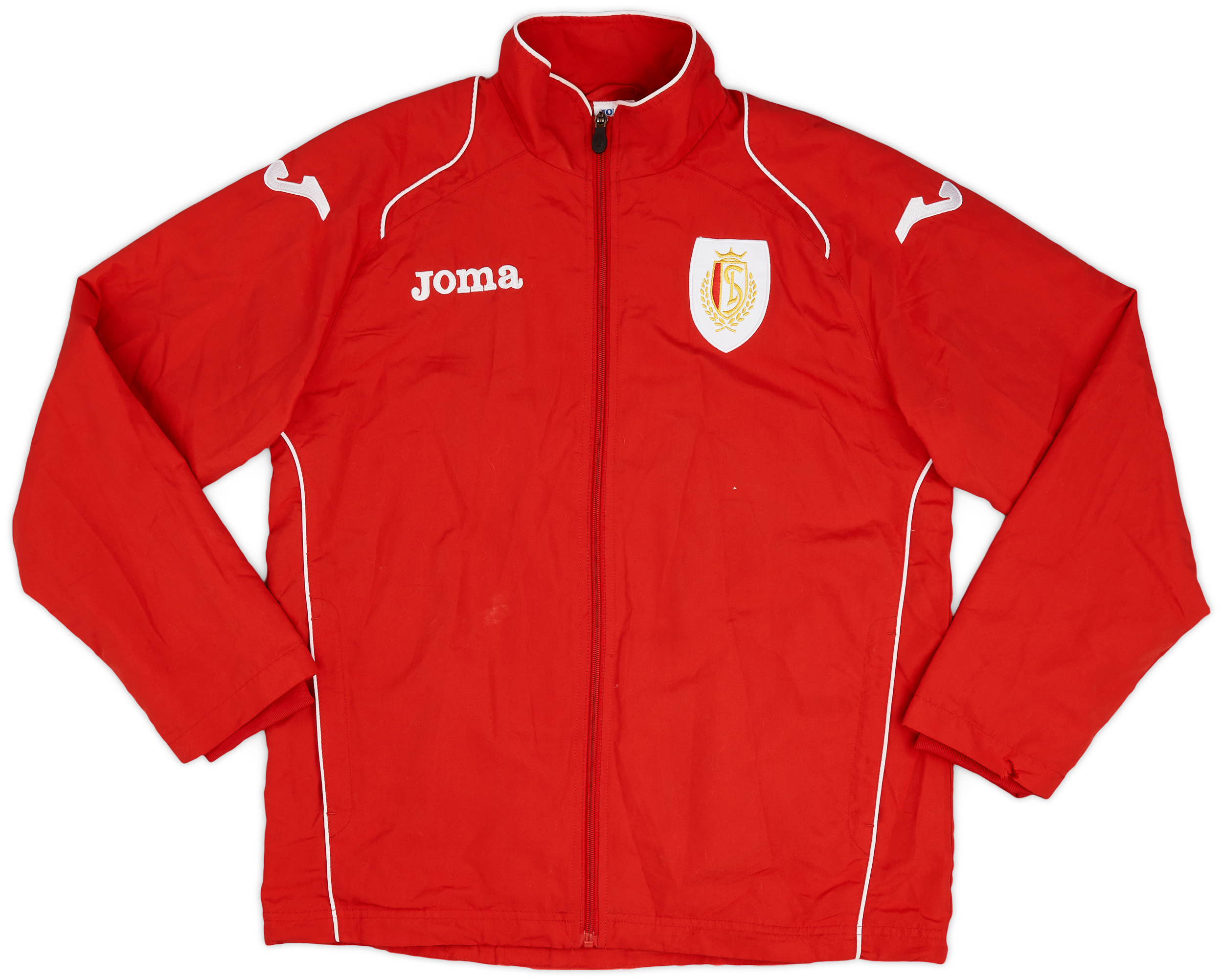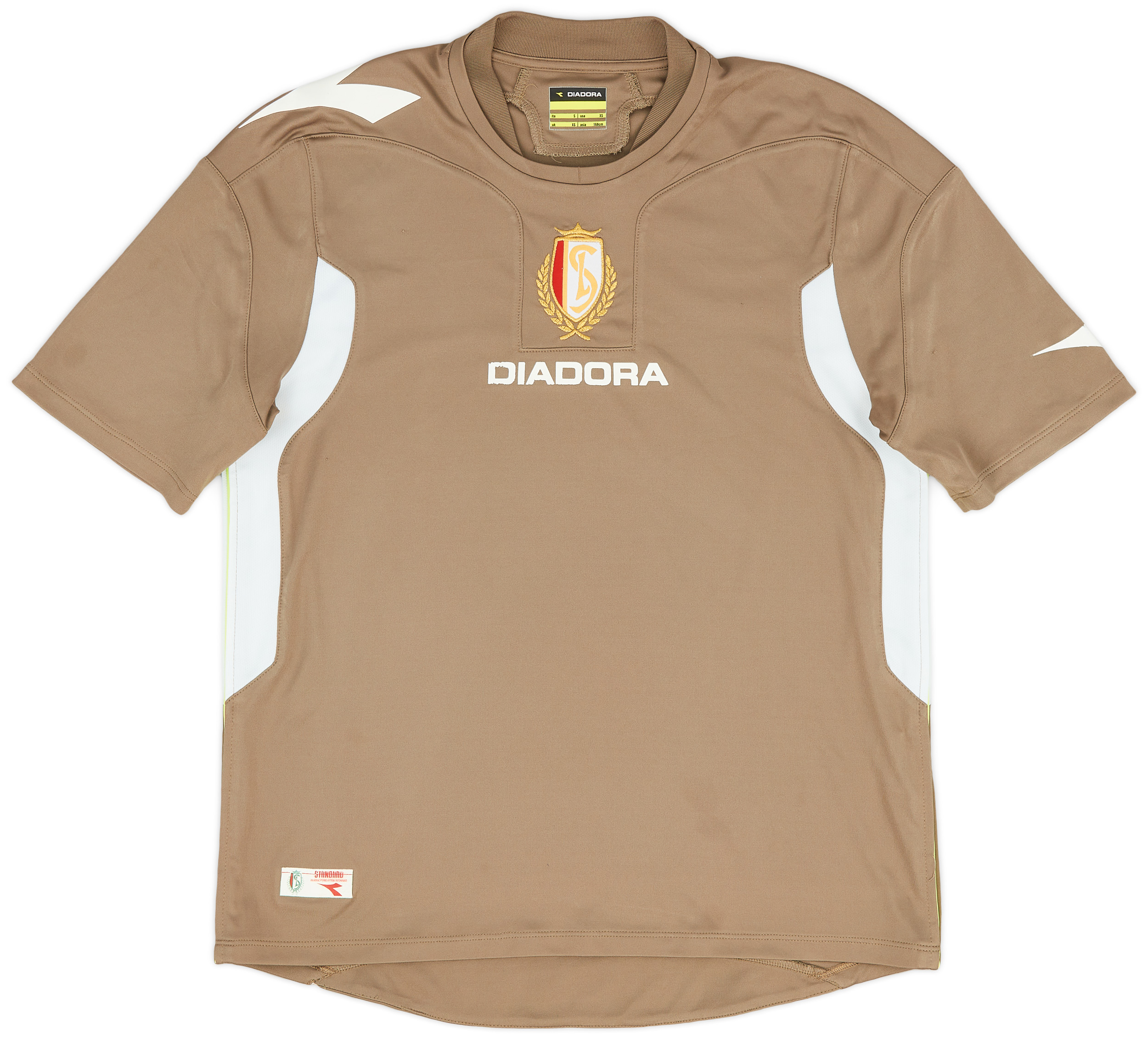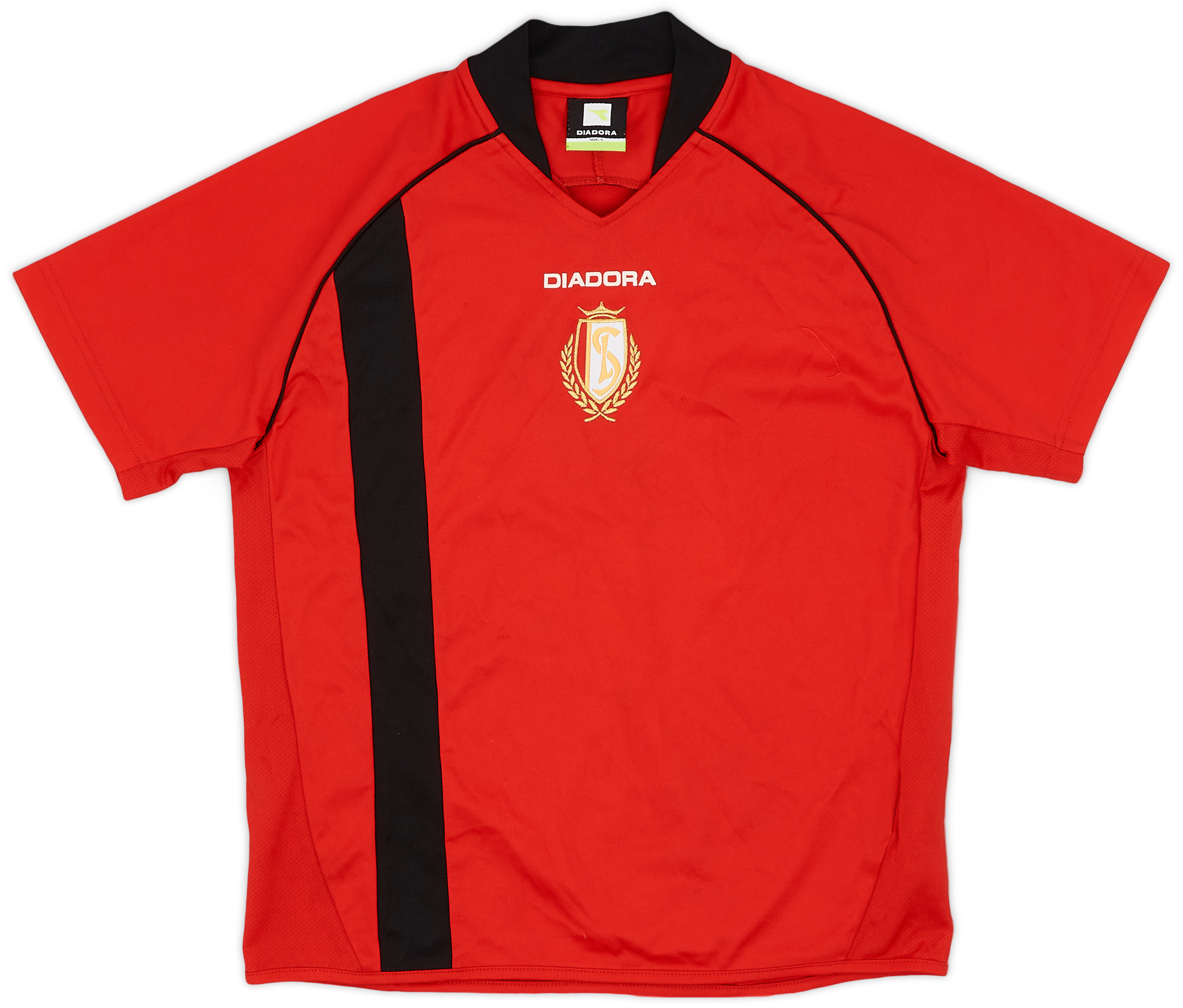Standard Liege
Introduction Standard Liège is one of the most storied football clubs in Belgium and has earned a prominent place in European football history. Founded in 1898 in the city of Liège, the club has become synonymous with passion, resilience, and local pride. Renowned for its distinctive red and white colors, Standard Liège has nurtured generations […]
1998-99 Standard Liege Home Shirt - 8/10 - (XL)
148.99£ - ca: €176
1999-00 Standard Liege Home Shirt - 8/10 - (XL)
148.99£ - ca: €176
1997-98 Standard Liege adidas Padded Bench Coat - 9/10 - (L)
148.99£ - ca: €176
1998-99 Standard Liege Home Shirt - 7/10 - (L)
118.99£ - ca: €140
1997-98 Standard Liege Home Shirt - 8/10 - (M)
82.99£ - ca: €98
2003-04 Standard Liege Away Shirt - 8/10 - (XXL)
70.99£ - ca: €84
2005-06 Standard Liege Away shirt - 7/10 - (XXL)
58.99£ - ca: €70
2009-10 Standard Liege Home Shirt - 8/10 - (S)
58.99£ - ca: €70
2012-13 Standard Liege Joma Track Jacket - 7/10 - (S)
58.99£ - ca: €70
2008-09 Standard Liege Diadora Rain Jacket S
58.99£ - ca: €70
2004-05 Standard Liege Home Shirt - 6/10 - (3XL)
58.99£ - ca: €70
2003-04 Standard Liege Away L/S Shirt Boffin #23 - 5/10 - (XL)
58.99£ - ca: €70
2018-19 Standard Liege Third Shirt - 8/10 - (M)
53.99£ - ca: €64
2011-12 Standard Liege Away Shirt - 6/10 - (XL)
53.99£ - ca: €64
2009-10 Standard Liege Home Shirt - 7/10 - (S)
53.99£ - ca: €64
2008-09 Standard Liege Away Shirt - 8/10 - (3XL)
47.99£ - ca: €57
2011-12 Standard Liege Home Shirt
47.99£ - ca: €57
2018-2019 Standard Liege Away Shirt #18 - 7/10 - (M)
47.99£ - ca: €57
2009-10 Standard Liege Third Shirt - 6/10 - (XS)
41.99£ - ca: €50
2014-15 Standard Liege Joma Training Shirt - 9/10 - (S)
35.99£ - ca: €42
2008-10 Standard Liege Diadora Training Shirt - 6/10 - (S)
29.99£ - ca: €35
2011-12 Standard Liege Joma Polo Shirt - 9/10 - (M)
29.99£ - ca: €35
2011-12 Standard Liege Away Shirt #16 - 5/10 - (M)
23.99£ - ca: €28
2012-13 Standard Liege Joma Training Shirt - 3/10 - (S)
9.99£ - ca: €12
Introduction
Standard Liège is one of the most storied football clubs in Belgium and has earned a prominent place in European football history. Founded in 1898 in the city of Liège, the club has become synonymous with passion, resilience, and local pride. Renowned for its distinctive red and white colors, Standard Liège has nurtured generations of talent and built a loyal fanbase. The club’s commitment to excellence, both on and off the pitch, makes it a vital part of Belgium’s rich football culture.
Club History
Standard Liège was established on April 1, 1898, by a group of local enthusiasts. The club took its name from the term “Standard,” reflecting a commitment to maintaining high standards in football. In its early years, the club grappled for recognition against other burgeoning teams in Belgium. However, it quickly carved out a reputation with its first major trophy, securing the Belgian Championship in 1909, only eleven years after its inception.
A significant period in Standard’s history came during the 1950s and 1960s, marked by back-to-back league triumphs and a consistent presence in national and international competitions. The club’s first European venture came in the 1960s, paving the way for several unforgettable moments in EFL history. With a history that traverses over a century, Standard has built a legacy powered by determination and ambition.
Achievements
Standard Liège’s success is reflected in its impressive trophy cabinet. Domestically, the club has claimed the Belgian Pro League title a remarkable 10 times, with championships won in years such as 1946, 1958, and 1969. The club’s notable performance in the Belgian Cup is equally commendable, with victories in 1966, 1981, and again in 2011, among others.
On the international stage, Standard enjoyed considerable success in European competitions. The standout moment came in 1982 when the club secured the UEFA Cup Winners’ Cup, marking a pinnacle in their European endeavors. The achievement not only elevated the club’s status in Belgium but also showcased its potential on the continental stage. Though subsequent years brought challenges, Standard Liège has remained a consistent competitor in European tournaments, qualifying for the UEFA Champions League and UEFA Europa League numerous times.
Significant Players and Matches
Throughout its illustrious history, Standard Liège has been home to many talented players who have left a lasting impression. One of the most notable figures is Paul van Himst, a legendary forward who played for the club in the 1950s and 1960s, earning a reputation as one of Belgium’s finest strikers. His scoring abilities and leadership on the field solidified his status as a club icon.
In more recent years, players such as Steven Defour, a homegrown talent, and Axel Witsel, who went on to have an impressive international career, showcased the club’s capacity to nurture young talent. Matches that are etched in the memories of fans include the thrilling 2011 Belgian Cup final against Gent, where Standard triumphed in a dramatic penalty shootout, and their storied rivalry with Anderlecht, which consistently produces electrifying encounters.
Cultural Impact
Standard Liège holds a special place in the hearts of its supporters and the local community. The passionate fanbase, known as “Les Rouches,” is renowned for its vibrant displays and unwavering loyalty, creating an electrifying atmosphere at the Stade Maurice Dufrasne. The intensity of support can elevate the players’ performances and reflects the city of Liège’s pride and identity.
The club also engages in several community initiatives, aimed at promoting sportsmanship and teamwork among the youth in the region. Through youth academies and outreach programs, Standard Liège plays a pivotal role in developing local talent and fostering a love for the beautiful game within the community.
Conclusion
Standard Liège is more than just a football club; it is a cornerstone of Belgian football history with a rich heritage defined by its achievements, notable players, and passionate fanbase. The combination of a deep-rooted commitment to excellence and a profound impact on local culture characterizes the essence of Standard Liège. As the club continues to strive for excellence, it remains a shining beacon in the world of European football, forever dedicated to upholding its proud legacy.
